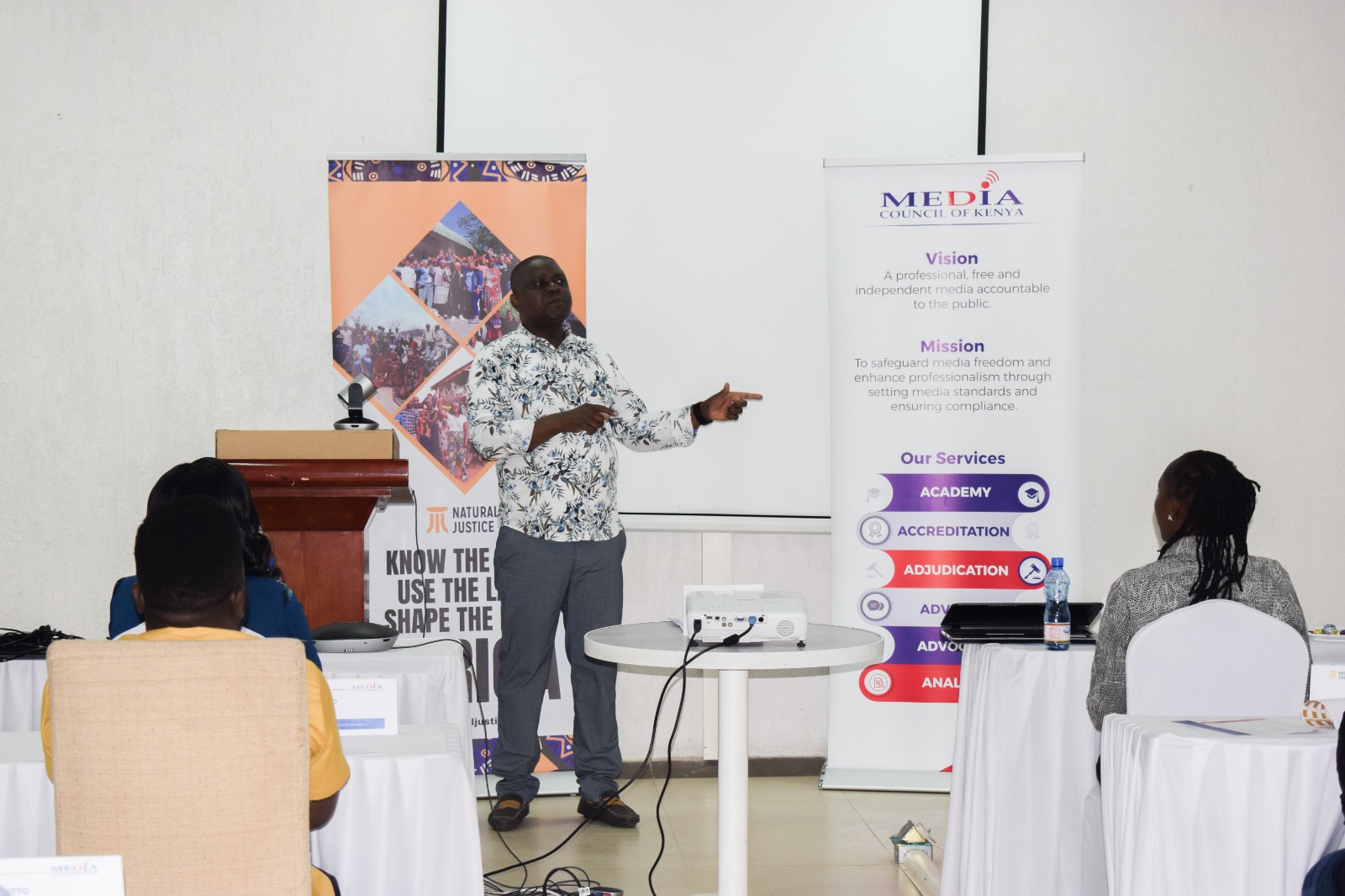
The Media Council of Kenya (MCK) has emphasised the crucial role of journalists in advancing climate and environmental justice.
MCK Director for Media Training and Development Victor Bwire says journalists remain central in these efforts and stressed the importance of preparing them to address the intricate issues tied to climate change and environmental accountability.
“Climate change impacts are felt across every community, particularly in key sectors like agriculture and fisheries. journalists need to grasp these complexities to raise awareness and foster accountability,” he said during a journalists’ training on climate justice in Naivasha.
Mr Bwire noted that the media should highlight the need for regulatory support to protect vulnerable groups facing environmental degradation, pollution and climate-related challenges.
“Journalists are vital advocates for community compensation and accountability by illustrating the real, often severe effects of pollution and climate change on local populations,” he added.
“Their work not only informs the public but also puts pressure on policymakers to take decisive action toward sustainability. Through in-depth reporting, journalists amplify affected voices and advocate for lasting changes that protect both people and the environment.”
Natural Justice Programmes Manager Rose Birgen highlighted the uneven impacts of climate change on marginalised communities and underscored the media’s role in holding governments responsible for environmental commitments.
“Human rights should be central to climate action, and journalists play a key role in this narrative,” she asserted, aligning with MCK’s stance on the media’s duty in climate reporting.
Ms Birgen emphasised that accurate, in-depth media coverage can drive policy changes favouring climate justice.
“Journalists have the power to shape perceptions and drive vital discussions on environmental issues. To do this effectively, they need a deep understanding of the complex realities involved. When reporters bring attention to communities often overlooked in policy decisions, they champion equity and fairness in climate response efforts,”she said
She further stressed the need for vigilance in monitoring policy promises. “The press plays a watchdog role, holding governments to their environmental pledges and revealing gaps in implementation. This helps to push for stronger policies that protect vulnerable groups, ensuring they are not sidelined in the climate change fight.”
The training, organised by MCK in partnership with Natural Justice, highlighted the importance of responsible reporting and the need for climate justice in shaping public discourse.